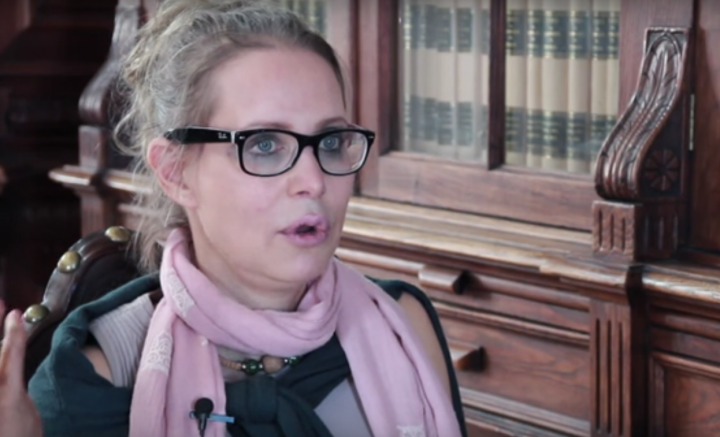The RBU is the only missing element in the welfare state we established after the last world war to guarantee the right to subsistence, according to Louise Haagh, President of BIEN and Professor at York University (England).
“To be able to lead a stable, secure, meaningful and full life is not only an individual responsibility, it is also a duty of our society, which must provide opportunities for it.
Álvaro Orús, Mayte Quintanilla and Ángel Bravo
Here are Haagh’s statements during the BIEN 2017 Congress in Lisbon. Although the text is not literal, it is very close.
I first heard about the RBU in Brazil, back in 2001, where they were developing the “Bolsa familia” program, which would later be implemented by Lula.
In my doctorate, and in a book based on it that I published later, I coined the term “occupational citizenship”, with which I wanted to emphasize that to belong to a society and to evolve as a human being it is important to have a purpose in life, and an occupation is a type of life purpose. But this is not only an individual matter, society also has a duty to provide opportunities for individuals to lead a stable, meaningful and fulfilling life. However, the neoliberal model places this responsibility exclusively on individuals.
Full interview
That is why, when I heard about the UBI in Brazil, as a guarantee of subsistence and a support of freedom and economic security, I realized that it was something very necessary and the missing piece in the economic development model of the time. And since then I have become an advocate for the UBI, because it will allow me to live a dignified life. But for me, UBI is no different from other rights that we already have guaranteed, such as health or education, for me UBI is a natural progression of the social welfare system that we enjoy in some societies. The UBI is the only missing element in the welfare state we established after the last world war: guaranteeing the right to subsistence.
Now, UBI is no longer a philosophical idea but an institutional proposition. But to do so, we must stop trying to make UBI a response to all kinds of problems and allow it to become part of a broader concept of just human development.
As for the current UBI experiments, I do not think they are necessary, because there is no need to prove that UBI is good, just as we do not need to prove that universal health and education are good. UBI is constitutive of human development, just like health or education. Moreover, most current experiments only look at how people who receive an UBI behave, in the sense that they still want to work in the labour market, which we know is absolutely unfair as it stands.
Speaking of the global labour market (globalisation), it is curious to note the reactions that have taken place against it in the last two years: almost all have taken the form of fascism, nationalism or populism, but there are some who are seeking democratic solutions at the local level and who are promoting UBI experiments as a way of providing unconditional income security. And in these local experiments I see the future of the UBI.
On the other hand, the opposition to the UBI that has emerged in the socialist unions and parties has had more to do with the way we have presented the UBI, as a contrast to the old structures of solidarity and social security. And in this presentation that we have made, the trade unions were a kind of “agents of the past”, and they are not, because they defend the same democratic values as the UBI. Moreover, we have claimed that the UBI is something radical and revolutionary, which will completely transform society. But this is not true, the UBI will not completely change society, at least not in the short term. The UBI is going to make changes of various kinds possible, so it will be a small but important reform. However, we should not aim for it to be able to solve many kinds of problems at the same time. The UBI is merely a step in the right direction.
And, finally, it must be realized that, although the UBI will have a positive influence on poverty reduction and wealth redistribution, it will not, however, totally end the UBI, because poverty is not only a lack of resources, but also a lack of the ability to live a full life, not to have eco-social relationships and not to control one’s own destiny within society. I believe that more than just UBI is necessary for all human beings to enjoy real opportunities.
However, if there is one thing relatively easy to achieve in our time that will improve our common destiny, it is UBI.






